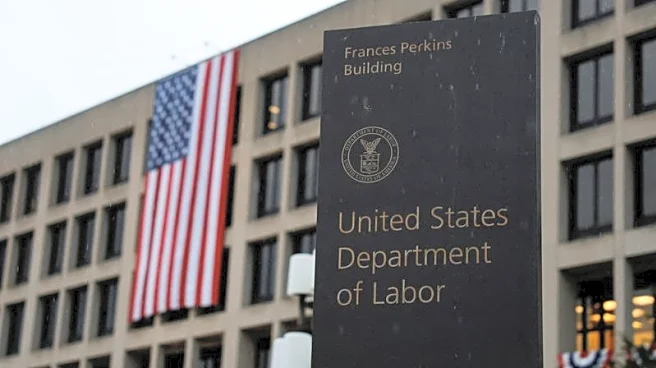What's Happening?
A federal appeals court has temporarily blocked President Trump from removing Federal Reserve Governor Lisa Cook from her position. The decision, made by a divided court in Washington, allows Cook to remain in her role while her lawsuit against the Trump administration proceeds. The court's ruling comes just before the Federal Reserve's meeting to discuss interest rates, a session that Cook is now likely to attend. The legal battle began after President Trump attempted to dismiss Cook over allegations of mortgage fraud, which she denies. The court's decision upholds a previous ruling by US District Judge Jia Cobb, who found that Trump's attempt to remove Cook likely violated her due process rights. The Justice Department has not commented on the ongoing litigation.
Why It's Important?
This legal decision is significant as it underscores the ongoing tension between the Trump administration and the Federal Reserve. The ruling prevents President Trump from potentially reshaping the Federal Reserve's board by appointing another member who aligns with his economic policies. This case highlights the broader issue of political influence over independent institutions like the Federal Reserve, which is designed to operate free from political pressure. The outcome of this legal battle could have implications for the Fed's policy decisions, particularly regarding interest rates, which are crucial for economic stability. The decision also emphasizes the importance of due process rights for public officials, setting a precedent for how such cases might be handled in the future.
What's Next?
The Trump administration is expected to appeal the ruling to the Supreme Court, seeking to overturn the decision and proceed with Cook's removal. Meanwhile, the Federal Reserve will continue its scheduled meeting to discuss interest rates, with Cook participating in the discussions. The outcome of this meeting could be influenced by the ongoing legal proceedings, as the Fed navigates its policy decisions amidst political pressure. Stakeholders, including investors and economists, will be closely monitoring the situation, as any changes in the Fed's composition or policy direction could have significant impacts on financial markets and the broader economy.











